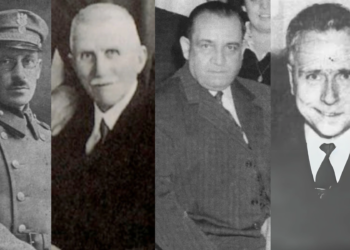Juliet Carp is a Solicitor and employment law specialist with over 30 years’ experience of advising employers and employees, and a former elected Chair of the UK Employment Lawyers Association. Views as expressed in this article are her own.
Every day millions of sick and dying people are helped with things that most of us would rather not do. These include nurses and doctors. Also people who do the ordinary things needed to keep homes, hospitals and hospices running. People who drive taxis, make appointments, measure drugs, talk with patients, dress sores, cook meals, make beds and clean everything from medical instruments to sheets and toilets. Some look after people who would choose assisted suicide. Many are low paid, vulnerable and speak English as a second or third language – and many have a religious faith which opposes assisted suicide.
The Bill initially included some limited protection for medical practitioners and other health ‘professionals’ and we understand this will now be extended to some other medical staff. The impact on the UK’s 1.6 million social care workers has barely been considered at all.
Employment law today is highly complex, involving interpretation of acts of Parliament, regulations, case law (including EU case law retained post-Brexit), not to mention statutory codes of practice and codes of conduct, some specific to the NHS. Ambiguity is resolved by reference to professional regulators, Employment Tribunals, and three further domestic layers of appeal, as well as the European Court of Human Rights. It is a very complex space.
There appears to be an expectation that legislation such as Employment Rights Act 1996 or Equality Act 2010 will protect those who refuse to facilitate suicide. In reality, our existing employment laws cannot adequately protect them. This is the case even where senior medical staff have the backing of insurance cover, professional associations, unions and lawyers. UK employment laws are simply not designed to stop bullying, give back a job or restore a career. They can offer limited post-event cash remedies to those with the resources and stamina to navigate them. And in the UK it has always been cheap to dismiss the low paid.
The formal equality impact assessment produced just before the Bill was last debated devoted just five short paragraphs to the interaction of the Bill with religion and belief, most of which unquestioningly described the content of the Bill “as is”. The assessment noted that ‘conscientious objection is available for all registered medical practitioners” but did not comment on whether the legislation would be practically effective to protect those who exercised that right. We can only assume, given that they are not mentioned, that no analysis of the impact on less “professional” people was undertaken at all.
Much has been said about special provisions for doctors who are unwilling to have initial discussions with patients about assisted suicide. However, the Bill still proposes that in that event the doctor must direct that person to where they can obtain information and have the required preliminary discussion. The equality impact assessment does not highlight that many doctors would be unable to do this. Nor does it offer any suggestions as to steps to retain those doctors within the NHS, or any analysis of likely impact on recruitment. The assessment does not seek to identify or rigorously assess alternative potentially less discriminatory options.
What will happen practically if a Christian or Muslim doctor is suspended or refused promotion for refusing to assist a patient by directing them to sources of further information about suicide options? Bear in mind that in the UK a doctor who is subject to a lengthy disciplinary process cannot usually simply work somewhere else in the meantime. The NHS has a monopoly on many things: and with that comes a need to ensure NHS processes are fair and transparent.
And what happens if it is not the employer but a third party who treats a worker badly? How will agency staff and other less typical workers be protected?
There appears to be a preference for letting others settle the difficult detail, eg the Chief Medical Officer (CMO). According to the legislation the CMO must draw up guidance. Does this mean that the CMO can only be selected from a (minority?) group of medical practitioners willing to facilitate suicide?
Currently it appears intended that unravelling the meaning of the proposed Bill and other potentially conflicting legal commitments should be left to our Courts. Given some of those conflicts are likely to involve the European Convention on Human Rights (ECHR) as well as the Equality Act, if the new legislation is not clear from the outset, cases could take years to resolve.
Practically, affected people (not just employees or people of a particular faith) need to be free to say “no”, if they choose to, at a time when it is sensible for them to do so, and with confidence as to consequences. They should not need to “prove” after the event that they actually hold a particular belief or practice a particular religion or what that religion required them to do.
The obligation not to kill will for many be a far more important concern than other issues addressed by existing religion and belief discrimination laws, and there is inevitable interaction with rights to life and freedom of thought, conscience and religion set out in the ECHR and related ECHR anti-discrimination provisions. Proper consideration does not appear to have been given to the seriousness of these beliefs and how this should be reflected in law and practice.
Where disputes are anticipated it is usually sensible to try to identify a solution before legislation is implemented. Better for the work to be done by MPs, legal draftsmen and policy makers upfront than leave the heavy lifting to individual workers, who too often become seriously ill when navigating long, complex and stressful employment disputes.
It may also be worth thinking on our previous experience of laws reflecting a Westminster or press-led view of what people “should” think in a modern democracy. In reality a strong democracy takes account of a range of views. Tolerance is the essential lubricant to a successful diverse society, and it is something that needs to be delivered in practical terms. Put simply, workers must be free to say ‘no’, and, if that freedom is to be real, they must be effectively protected from negative consequences. MPs have a responsibility not just to voice principled views but to ensure the legislation they vote for will actually work.
This rushed legislation will create huge legal uncertainty. Legal cases could be taken by registered healthcare workers, social care workers and others, with different provisions applying to different professional roles and employment status (employee, worker, self-employed contractor or agency worker) and in different contexts. In the end, it is the most vulnerable workers who are likely to find this most difficult to navigate.


![Former Bravo Star Charged After Violent Assault Using a Rock-Filled Sock in Tennessee Walmart [WATCH]](https://www.right2024.com/wp-content/uploads/2025/07/Former-Bravo-Star-Charged-After-Violent-Assault-Using-a-Rock-Filled-350x250.jpg)



![Karoline Leavitt Levels CNN's Kaitlan Collins and Other Legacy Media Reporters [WATCH]](https://www.right2024.com/wp-content/uploads/2025/07/Karoline-Leavitt-Levels-CNNs-Kaitlan-Collins-and-Other-Legacy-Media-350x250.jpg)
![Man Arrested After Screaming at Senators During Big Beautiful Bill Debate [WATCH]](https://www.right2024.com/wp-content/uploads/2025/06/Man-Arrested-After-Screaming-at-Senators-During-Big-Beautiful-Bill-350x250.jpg)



![Illegal Alien Walked Free After Decapitating Woman, Abusing Corpse for Weeks [WATCH]](https://www.right2024.com/wp-content/uploads/2025/07/1753013138_Illegal-Alien-Walked-Free-After-Decapitating-Woman-Abusing-Corpse-for-350x250.jpg)





